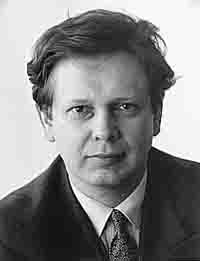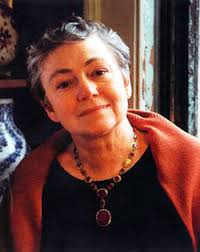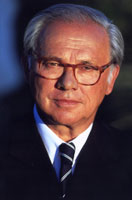
Introduction
By John Brockman
On May 23rd, the German newspaper Frankfurter Allgemeine Zeitung published Frank Schirrmacher's manifesto "Wake-Up Call for Europe Tech", in which he calls for Europe to adopt the ideas of the third culture. "Europe," he writes, "should be more than just a source for the software of ego crisis, loss of identity, despair, and Western melancholy. We should be helping write the code for tomorrow."
Schirrmacher is a publisher of the newspaper, and his manifesto, a call to arms, is the beginning of a effort byFAZ to publish articles by and about third culture thinkers and their work. His goal: to change the culture of the newspaper and to begin a process of change in Germany and Europe.
Schirrmacher's program, a departure for FAZ, has been covered in the German press and has caused a stir in German intellectual circles. FAZ has played an important role in shaping German culture, and that has meant, until now, culture with a capital "C".
In a few short weeks since publication of his manifesto, Schirrmacher has brought the ideas of Bill Joy, Ray Kurzweil, V.S. Ramachandran, Patrick Bateson, James Watson, Craig Venter, among other notable thinkers to the forefront of public discussion in Germany, while also initiating a collaboration between FAZ and Edge, the first product of which was the recent simultaneous publication in English and German of David Gelernter's manifesto, "The Second Coming."
—JB
FRANK SCHIRRMACHER became head of the arts and science department of the Frankfurter Allgemeine Zeitung, one of the most influential German newspapers . He has been one of the publishers of FAZ since 1994.
Frank Schirrmacher's Edge Bio Page
REALITY CLUB: George Dyson, Stewart Brand, Sebastian Schnitzenbaumer, Dave Myers, Clifford Pickover, Kai Krause, Jason McCabe Calacanis, Charles Simonyi, Mihalyi Csikszentmihalyi, J.C. Herz, Lee Smolin.





